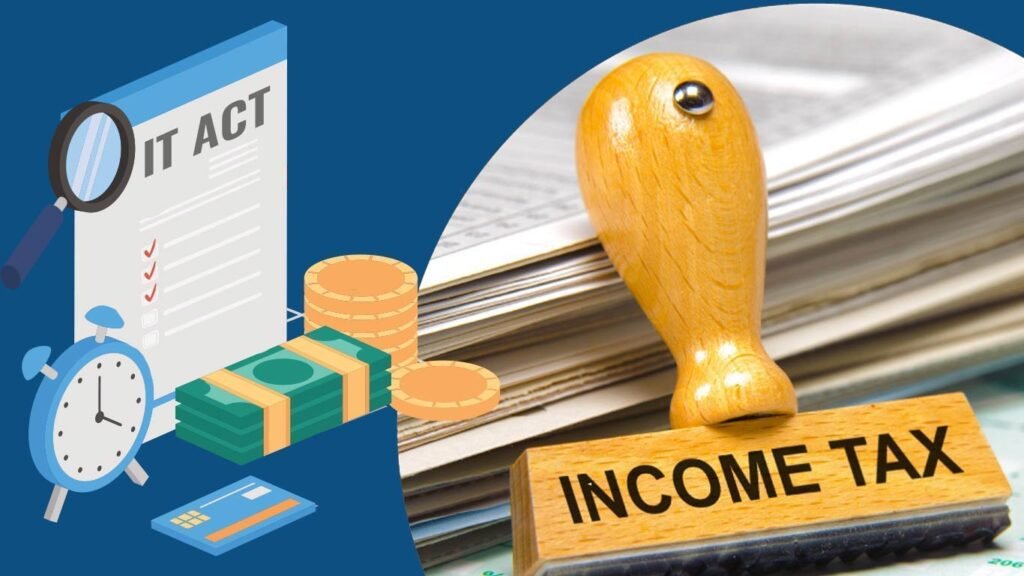Income Tax Act Revamp: A Step Toward Simplification
The Indian Income Tax Act, 1961, has long been a cornerstone of the country’s financial and economic systems. However, its complexity has been a source of contention for taxpayers and professionals alike. Recognizing this challenge, the Union Minister for Finance and Corporate Affairs, Smt. Nirmala Sitharaman, announced in the Union Budget 2024-25 a comprehensive review of the Income Tax Act, 1961. In line with this announcement, the Central Board of Direct Taxes (CBDT) has formed an internal committee under the chairmanship of Mr. V.K. Gupta, Chief Commissioner of Income Tax, to bring about much-needed reforms.
This initiative marks a significant step toward creating a more rational, simplified, and taxpayer-friendly framework. Here’s an in-depth look at the objectives, scope, and anticipated outcomes of this reform. GST Registration
Objectives of the Review
The overarching goal of the committee is to streamline the Income Tax Act, 1961, making it more concise, clear, and user-friendly. The focus is on reducing disputes and litigation while ensuring greater tax certainty for taxpayers. The key objectives include:
- Simplification of Language: Making the Act less convoluted and easier to comprehend.
- Litigation Reduction: Minimizing ambiguities that often lead to legal disputes.
- Compliance Reduction: Easing the procedural burden for taxpayers.
- Elimination of Redundant Provisions: Identifying and removing outdated or obsolete sections of the Act.
How the Public Can Contribute
The committee is encouraging public participation by inviting suggestions and inputs across four main categories:
- Simplification of Language
- Litigation Reduction
- Compliance Reduction
- Redundant/Obsolete Provisions
A dedicated webpage has been launched on the e-filing portal, where stakeholders, experts, and the public can share their suggestions. Accessible via this link, the portal requires users to enter their name and mobile number, followed by OTP verification. Stakeholders are advised to specify the relevant provisions of the Act or Rules in their suggestions for greater clarity.

Key Concerns Raised
As part of this review exercise, several broad concerns and suggestions have already been identified:
- Introduction of an Abridged Version for Small Taxpayers: Simplified provisions for small taxpayers to enhance ease of compliance.
- Simplification of Provisos: Merging provisos into the main language of sections to reduce confusion.
- Clarity in Provisions: Ensuring a single section addresses multiple related issues clearly.
- Consistency in Interpretation: Encouraging the tax department to adopt a unified stance on specific provisions.
- Revisiting Tax Holidays and Sunset Clauses: Phasing out these measures to promote uniformity.
- Mediation Mechanism: Establishing a mediation system with retired officers and independent professionals to resolve disputes amicably.
- Decriminalization of Provisions: Reducing criminal penalties for minor offenses. GST Filing
Streamlining Processes and Rationalization
Some of the other major suggestions include:
- Faceless Assessments: Addressing concerns related to the faceless assessment mechanism to ensure transparency and fairness.
- Subsuming Surcharge and Education Cess: Simplifying the tax rate by merging additional charges into the basic rate.
- Utility for Small Taxpayers: Creating a comprehensive utility with important provisions and simplified information for small taxpayers.
- Illustrations in Provisions: Including examples in sections to improve clarity and applicability.
- Harmonization of Definitions: Aligning definitions across various Acts for consistency.
- Commentaries by the Tax Department: Releasing periodic insights similar to OECD commentaries.
Expected Benefits
The revamp aims to reduce the compliance burden, foster a taxpayer-friendly environment, and bring greater clarity to the law. Streamlined TDS provisions, better coordination between the Central Processing Centre (CPC) and Assessing Officers, and periodic updates are some of the anticipated outcomes. These changes are expected to encourage voluntary compliance and build trust between taxpayers and the department.
The Income Tax Act revamp is a monumental step toward modernizing India’s tax system. By simplifying language, reducing litigation, and eliminating redundant provisions, the government aims to foster an equitable and efficient tax environment. Public participation in this process underscores the importance of collective effort in shaping policies that impact millions.
This initiative is not just about reforming a law but about laying the groundwork for a fair, transparent, and user-friendly tax system. As stakeholders and citizens, we all have a role to play in ensuring its success. If you have suggestions, visit the e-filing portal and contribute to this transformative journey today!

